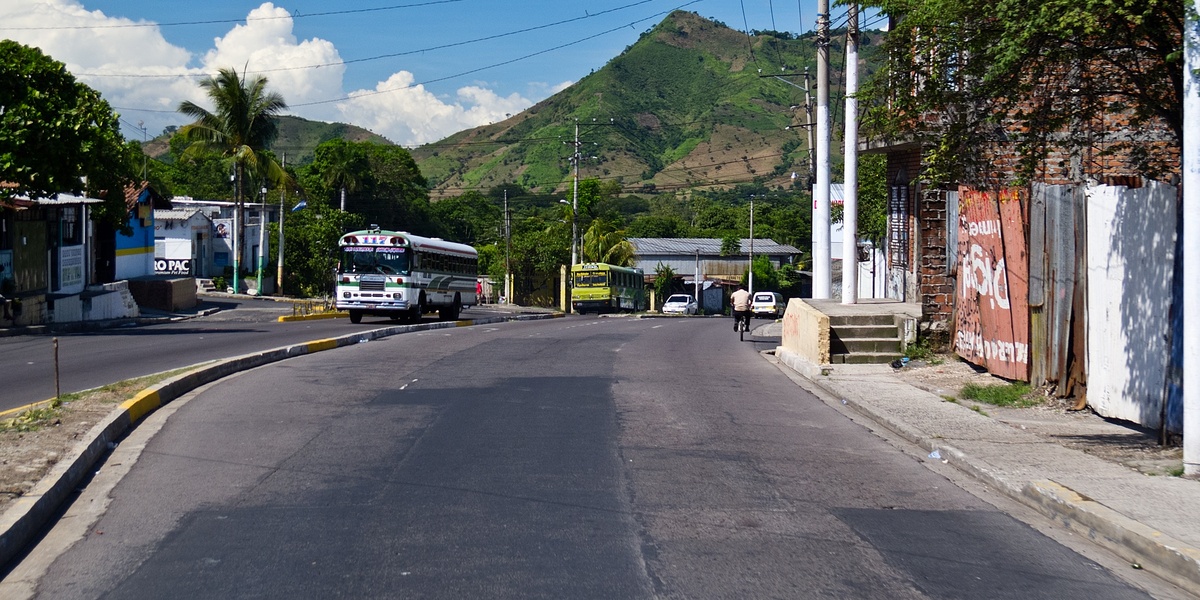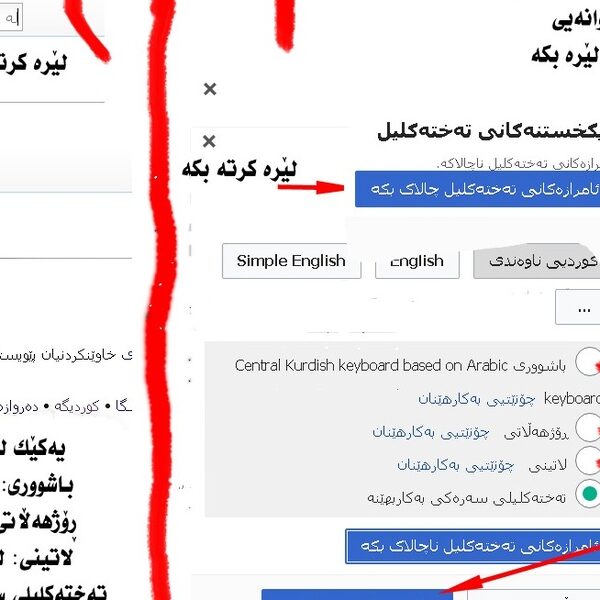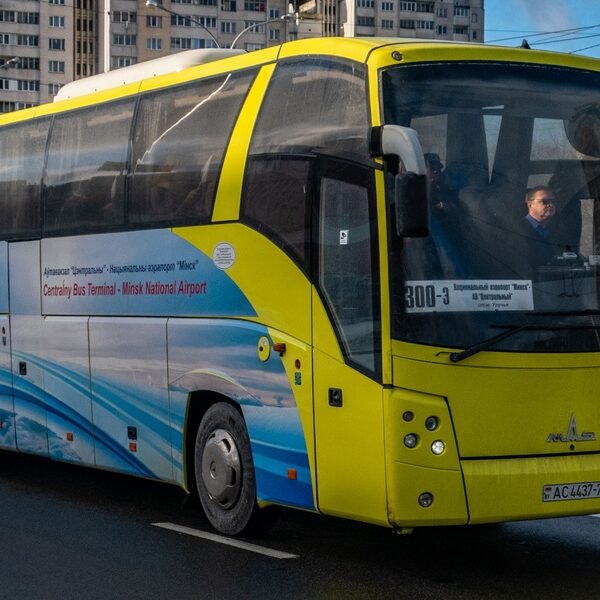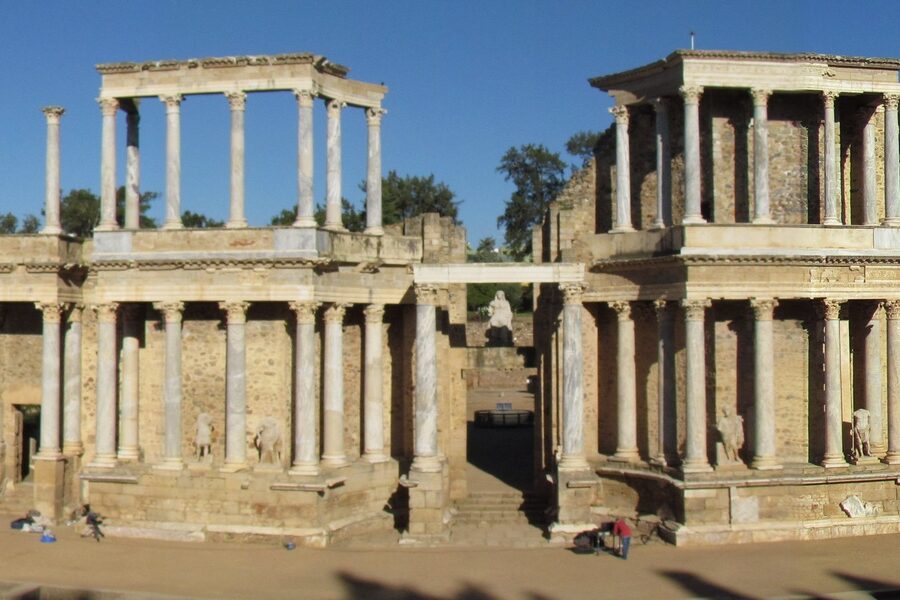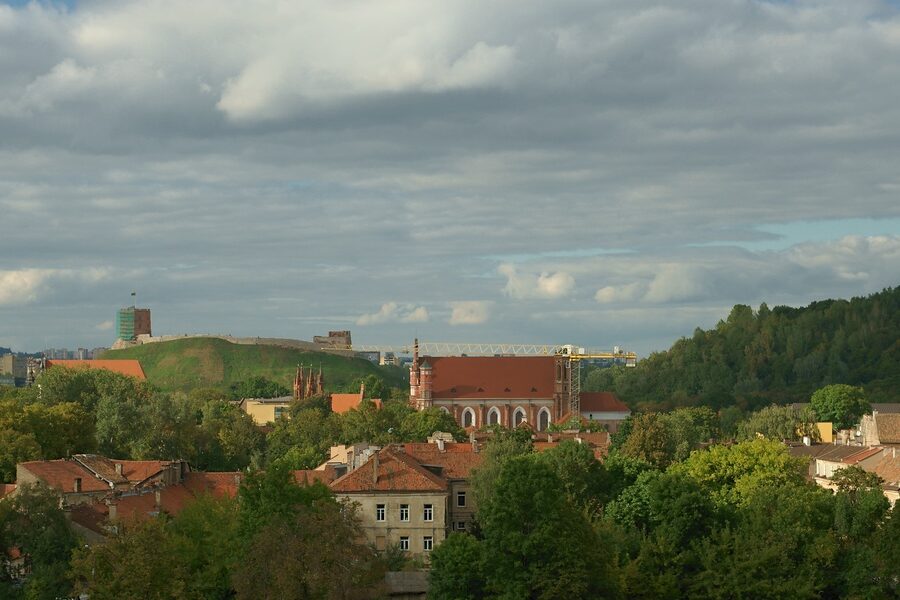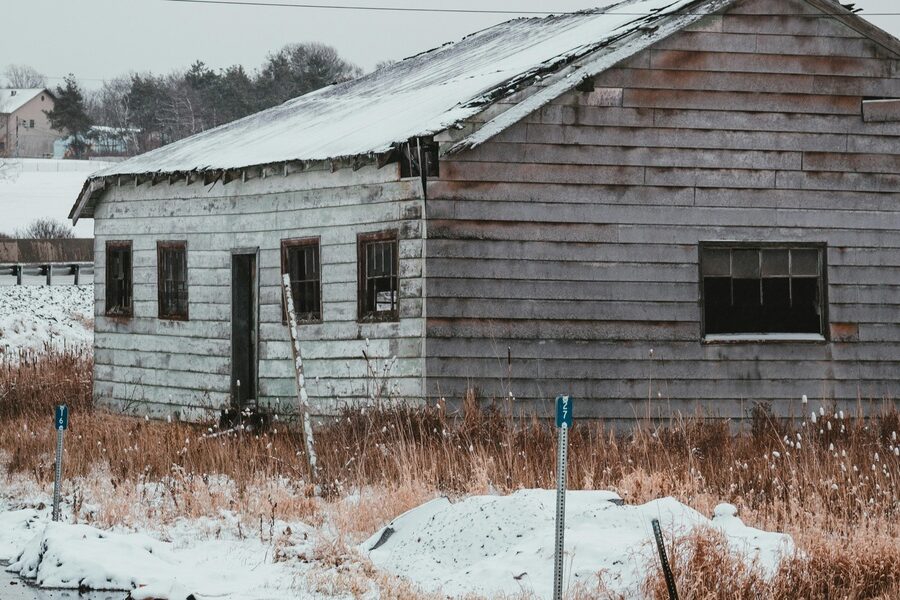El Salvador’s streets, markets and coastal towns are full of friendly faces and everyday moments where a few local words open doors. Whether you’re bargaining at a market, ordering pupusas, or asking for directions, knowing some basic phrases makes travel smoother and more enjoyable.
There are 50 Useful Phrases for Tourists in El Salvador, ranging from Adiós to ¿Qué tal?. Each phrase is listed with Phonetic (plain ASCII),English translation,Usage/context to help you pronounce and use them naturally — you’ll find below.
How can I practice pronunciation quickly if I’m not fluent in Spanish?
Use the Phonetic (plain ASCII) column as a starting point, listen to natives (short clips or conversation apps), and repeat short phrases aloud until they feel natural. Focus on helpful patterns (vowel sounds and dropped consonants), mimic rhythm more than perfect accents, and try phrases with locals — most appreciate the effort more than perfection.
Which phrases should I learn first for everyday use?
Start with greetings, polite phrases (por favor, gracias), basic questions (¿Dónde está…?, ¿Cuánto cuesta?), emergency words (ayuda, policía), and food/drink orders. Those cover most daily interactions and build confidence quickly; the list below highlights practical examples and contexts.
Useful Phrases for Tourists in El Salvador
| Spanish phrase | Phonetic (plain ASCII) | English translation | Usage/context |
|---|---|---|---|
| Hola | OH-lah | Hello | Greeting someone at any time of day |
| Buenos días | BWEH-nohs DEE-ahs | Good morning | Greeting someone in the morning (until noon) |
| Buenas tardes | BWEH-nahs TAR-dehs | Good afternoon | Greeting someone in the afternoon (noon to 6pm) |
| Buenas noches | BWEH-nahs NO-chehs | Good evening / Good night | Greeting in the evening or saying good night |
| ¿Qué tal? | keh TAHL | How’s it going? / What’s up? | A casual way to say “how are you?” |
| ¿Cómo está? | KOH-moh eh-STAH | How are you? (formal) | A polite way to ask how someone is |
| Adiós | ah-dee-OHS | Goodbye | Saying goodbye in any situation |
| Nos vemos | nohs VEH-mohs | See you later | A casual way to say goodbye |
| Por favor | pohr fah-VOHR | Please | Making a request or asking for something |
| Gracias | GRAH-see-ahs | Thank you | Expressing gratitude for a service or kindness |
| De nada | deh NAH-dah | You’re welcome | Responding to someone who says “thank you” |
| Con permiso | kohn pehr-MEE-soh | Excuse me (to pass) | When you need to get past someone |
| Disculpe | dees-KOOL-peh | Excuse me (to get attention) | To get someone’s attention or apologize |
| ¿Habla inglés? | AH-blah een-GLEHS | Do you speak English? | Asking if someone speaks English |
| No entiendo | noh ehn-tee-EHN-doh | I don’t understand | When you don’t understand what was said |
| ¿Dónde está el baño? | DOHN-deh eh-STAH el BAH-nyoh | Where is the bathroom? | Asking for the location of the restroom |
| ¿Cuánto cuesta? | KWAN-toh KWEHS-tah | How much does it cost? | Asking for the price of a single item |
| ¿A cómo son? | ah KOH-moh sohn | How much are they? | Asking for the price, especially in markets |
| ¿Dónde está…? | DOHN-deh eh-STAH | Where is…? | Asking for the location of a place |
| ¿Dónde agarro el bus para…? | DOHN-deh ah-GAH-rroh el boos PAH-rah | Where do I catch the bus for…? | Asking for the bus stop for a destination |
| ¿Me lleva a…? | meh YEH-vah ah | Can you take me to…? | Telling a taxi driver your destination |
| Pare aquí, por favor | PAH-reh ah-KEE pohr fah-VOHR | Stop here, please | Asking a taxi or bus driver to stop |
| La cuenta, por favor | lah KWEN-tah pohr fah-VOHR | The check, please | Asking for the bill in a restaurant |
| Quisiera… | kee-see-EH-rah | I would like… | A polite way to order or request something |
| Una pupusa de… | OO-nah poo-POO-sah deh | A pupusa of… | Ordering El Salvador’s national dish |
| Queso con loroco | KEH-soh kohn loh-ROH-koh | Cheese with loroco | A classic and popular pupusa filling |
| Revueltas | reh-VWEHL-tahs | Mixed (pork, beans, and cheese) | Ordering a classic pupusa with everything |
| Un café, por favor | oon kah-FEH pohr fah-VOHR | A coffee, please | Ordering a coffee |
| ¡Provecho! | proh-VEH-choh | Enjoy your meal! | Said to people who are eating or about to eat |
| ¡Estuvo rico! | ehs-TOO-voh REE-koh | It was delicious! | Complimenting the food after a meal |
| Para llevar | PAH-rah yeh-VAR | To go / Takeout | Ordering food to take with you |
| Para comer aquí | PAH-rah koh-MEHR ah-KEE | To eat here / For here | Ordering food to eat at the restaurant |
| ¿Aceptan tarjeta? | ah-SEP-tahn tar-HEH-tah | Do you accept cards? | Asking if you can pay with a credit/debit card |
| Sólo efectivo | SOH-loh eh-fek-TEE-voh | Cash only | When a place does not accept credit cards |
| ¡Ayuda! | ah-YOO-dah | Help! | Shouting for help in an emergency |
| Necesito un doctor | neh-seh-SEE-toh oon dok-TOHR | I need a doctor | When you need medical assistance |
| Llame a la policía | YAH-meh ah lah poh-lee-SEE-ah | Call the police | When you need to report a crime or danger |
| Vaya pues | VAI-yah pwess | Okay then / Alright | Agreeing, confirming, or ending a conversation |
| ¡Qué chivo! | keh CHEE-voh | How cool! / That’s awesome! | Expressing that you like something a lot |
| Cabal | kah-BAHL | Exactly / That’s right | Agreeing with someone or confirming something |
| ¿Mande? | MAHN-deh | Pardon? / What did you say? | A polite way to ask someone to repeat themselves |
| Cipote / Cipota | see-POH-teh / see-POH-tah | Kid / Boy / Girl | A common word for a child or young person |
| Chero / Chera | CHEH-roh / CHEH-rah | Friend / Buddy (male/female) | An informal word for a close friend |
| Bicho / Bicha | BEE-choh / BEE-chah | Kid / Young person (very informal) | A very informal term for a kid, similar to cipote |
| ¡Púchica! | POO-chee-kah | Wow! / Darn! | A mild exclamation of surprise or frustration |
| ¡Salú! | sah-LOO | Cheers! / Bless you! | Toasting a drink or after someone sneezes |
| Un dólar | oon DOH-lar | One dollar | Referring to the U.S. dollar, the currency |
| Una cora | OO-nah KOH-rah | A quarter (25 cents) | Slang for a U.S. quarter coin |
| Un cinco | oon SEEN-koh | A nickel (5 cents) | Slang for a U.S. nickel coin |
| Una peseta | OO-nah peh-SEH-tah | A quarter (25 cents) | Another slang term for a 25 cent coin |
Descriptions
Hola
The universal Spanish greeting. It’s friendly, simple, and always appropriate, whether you’re entering a shop, meeting someone for the first time, or just passing by on the street. Use it liberally to be polite.
Buenos días
A polite and common way to greet anyone in the morning. It’s used everywhere, from hotels to local markets, and shows respect. People will appreciate you using the time-appropriate greeting.
Buenas tardes
Use this greeting from around noon until the sun goes down. Like “buenos días,” it’s a standard, polite greeting for any situation, whether you’re entering a restaurant or asking for directions.
Buenas noches
This phrase works both as a “hello” when you arrive somewhere in the evening and a “goodbye” when you’re leaving for the night or going to bed. It’s a warm and respectful way to address people after dark.
¿Qué tal?
This is a friendly, informal greeting you can use with people you’ve met before or in casual settings. It’s less formal than “¿Cómo está?” and often used between peers or in relaxed environments.
¿Cómo está?
This is the more formal and respectful way to ask “How are you?”. Use it with older people, in professional settings like a hotel, or with anyone you’ve just met to show politeness.
Adiós
The standard way to say goodbye. It can be used in formal and informal situations alike, whether you are leaving a store, a restaurant, or finishing a conversation with a new acquaintance.
Nos vemos
A more informal and friendly way to say goodbye, implying that you’ll see the person again. It’s perfect for ending a casual conversation with someone you expect to run into later.
Por favor
A fundamental phrase for being polite. Add it to any request, such as when ordering food, asking for directions, or buying something. Using “por favor” is always appreciated and shows good manners.
Gracias
The most important word for showing appreciation. Say it when someone helps you, serves you food, or gives you information. A simple “gracias” goes a long way in making positive connections with locals.
De nada
This is the standard and polite reply after someone thanks you. It’s the equivalent of “you’re welcome” or “not at all” and is used in every type of situation, from the market to a hotel.
Con permiso
Say this when you need to squeeze by someone in a crowded space, like on a bus or in a market. It’s the polite way to say “excuse me, may I pass?” and is much better than just pushing through.
Disculpe
Use this to politely get a waiter’s attention, ask a stranger for directions, or apologize for bumping into someone. It’s a versatile phrase for initiating conversations or making a small apology.
¿Habla inglés?
A very useful question when you’re struggling with Spanish. It’s polite to ask this before launching into English. Many people in tourist areas will speak some English, but asking first is respectful.
No entiendo
An essential phrase for any language learner. If someone is speaking too fast or using words you don’t know, this is a clear and polite way to communicate that you need them to repeat or simplify.
¿Dónde está el baño?
A crucial question for any traveler. This phrase is universally understood and will get you pointed in the right direction when you need to find a restroom in a restaurant, bus station, or museum.
¿Cuánto cuesta?
The standard way to ask for the price of something before you buy it. Use it in shops, markets, and with taxi drivers to be clear about the cost. It helps avoid any surprises when it’s time to pay.
¿A cómo son?
This is a very common, natural way Salvadorans ask for the price of items, especially when there are multiples (like fruits or souvenirs). It sounds a bit more local than “¿Cuánto cuesta?”.
¿Dónde está…?
The fundamental phrase for asking for directions. Simply add the name of the place you’re looking for at the end, for example, “¿Dónde está la playa?” (Where is the beach?).
¿Dónde agarro el bus para…?
This is the local way to ask where to find the right bus. Public buses are a common way to travel, and this phrase will help you navigate the system by asking locals for the correct stop.
¿Me lleva a…?
The perfect phrase to use when you get into a taxi. Just say this followed by your destination’s name or address. For example, “¿Me lleva al Hotel El Salvador, por favor?”.
Pare aquí, por favor
Use this to tell your driver that you’ve arrived at your destination and want to get out. It’s a clear and polite instruction that ensures you’re dropped off at the right spot.
La cuenta, por favor
When you’re finished with your meal and ready to pay, use this phrase to get your waiter’s attention. It’s the standard and polite way to ask for the bill in any dining establishment.
Quisiera…
A softer and more polite way to say “I want…” when ordering food, coffee, or making a purchase in a store. For example, “Quisiera un café, por favor” (I would like a coffee, please).
Una pupusa de…
Pupusas are a must-try. Use this phrase to order them with your favorite filling. Follow it with “queso” (cheese), “frijol con queso” (beans and cheese), or “revueltas” (mixed).
Queso con loroco
Loroco is an edible flower bud with a unique, savory flavor. Ordering a pupusa with “queso con loroco” is a great way to taste a truly authentic and beloved Salvadoran specialty.
Revueltas
This is one of the most popular types of pupusas. It’s a delicious mix of ground pork (chicharrón), refried beans, and cheese. If you’re not sure what to get, “revueltas” is always a great choice.
Un café, por favor
El Salvador is famous for its high-quality coffee. This simple phrase is all you need to order a cup. You can specify “negro” (black) or “con leche” (with milk) if you have a preference.
¡Provecho!
It’s common for people to say this when they walk past your table at a restaurant, or for the server to say it when they bring your food. It’s a polite and friendly gesture, similar to “bon appétit.”
¡Estuvo rico!
A great way to show your appreciation for a delicious meal. Telling your server or the cook that the food “estuvo rico” is a wonderful compliment that will surely be appreciated.
Para llevar
If you don’t want to dine in, use this phrase to let the staff know you’d like your food packaged for takeout. It’s useful in restaurants, cafes, and street food stalls.
Para comer aquí
When you order, you’ll often be asked if your food is “para llevar o para comer aquí.” Use this phrase to indicate that you’ll be dining in at the establishment.
¿Aceptan tarjeta?
Before ordering or making a large purchase, it’s wise to ask this question. While cards are accepted in many hotels and larger restaurants, smaller shops and markets are often cash-only.
Sólo efectivo
You will often see signs or be told this in smaller businesses, market stalls, and on buses. It’s a good reminder to always carry some U.S. dollars, which is the official currency.
¡Ayuda!
This is the universal word for help. Yell it loudly if you are in danger or see someone who needs immediate assistance. It’s a critical word to know for your safety.
Necesito un doctor
A crucial phrase if you or someone you’re with becomes ill or injured. Say this to a hotel employee, police officer, or local, and they can help you find medical care.
Llame a la policía
In an emergency situation where you need law enforcement, this is the phrase to use. It’s a direct and clear command that anyone will understand and can act on.
Vaya pues
This is a hallmark of Salvadoran Spanish. It’s a friendly, all-purpose phrase for “okay,” “sounds good,” or “alright then.” Use it to agree to plans or acknowledge what someone has said.
¡Qué chivo!
The most famous Salvadoran slang word for “cool” or “great.” You can use it to describe a beautiful place, a fun experience, or anything you find impressive. Locals will love hearing you use it.
Cabal
A very common word used to say “exactly,” “precisely,” or “that’s right.” When someone says something you completely agree with, a simple “¡Cabal!” is the perfect, local-sounding response.
¿Mande?
Instead of just saying “¿Qué?” (What?), Salvadorans often use the more polite “¿Mande?”. It’s a softer way of saying you didn’t hear or understand something and would like it to be repeated.
Cipote / Cipota
This is the classic Salvadoran word for a boy (cipote) or girl (cipota). You’ll hear it used affectionately by adults everywhere. As a tourist, it’s more something to recognize than to use yourself.
Chero / Chera
This is Salvadoran slang for a close friend or pal. “Mi chero” means “my buddy.” While it’s very common among locals, it’s best to use it only if you’ve developed a close, informal relationship.
Bicho / Bicha
This is another very informal word for a kid, often used like “cipote.” It can sometimes have a slightly mischievous connotation. You’ll hear it a lot, but “cipote” is a bit more neutral.
¡Púchica!
A very common, mild exclamation used to express surprise, awe, or slight frustration. It’s a softer alternative to stronger swear words and you will hear it used daily in all kinds of situations.
¡Salú!
Just like in English, this is the go-to word when clinking glasses for a toast. It’s also the correct and polite response to say to someone right after they sneeze.
Un dólar
El Salvador uses the U.S. dollar as its official currency. While it seems straightforward, knowing the simple Spanish phrase is helpful for clarifying prices in noisy markets or confirming costs.
Una cora
You’ll hear this a lot, especially in markets or on buses. A “cora” is a 25-cent coin. Knowing this slang is very useful for small, everyday cash transactions and understanding prices.
Un cinco
This is the local slang for a 5-cent coin. The word literally means “a five.” While less common than the “cora,” it’s still good to know for handling small change.
Una peseta
This is another, slightly older slang term for a quarter, just like “cora.” You might hear it used by older Salvadorans. “Cora” is generally more common among the younger generations today.

